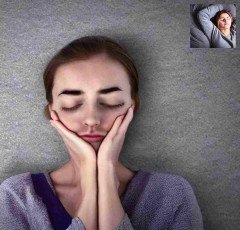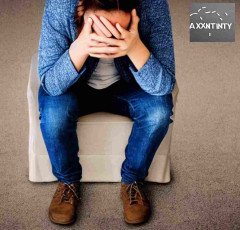
What is Sleep hygiene and disorders ?

A group of behaviors and routines that encourage restful, healthful sleep are referred to as sleep hygiene. Creating a pleasant environment for sleep, keeping a regular sleep routine, abstaining from caffeine and other stimulants before bed, and doing relaxing activities before bedtime are a few examples of these techniques. People can increase the quantity and quality of their sleep by following proper sleep hygiene, which can have a number of positive effects on their physical and mental well-being.
On the other side, sleep disorders are ailments that make it difficult to fall asleep or stay asleep, or that cause excessive daytime sleepiness or other sleep-related issues. There are many different kinds of sleep disorders, such as insomnia (difficulty falling or staying asleep), sleep apnea (condition in which breathing is interrupted while sleeping), restless leg syndrome (condition characterized by uncomfortable leg sensations that cause an irresistible urge to move the legs), and narcolepsy (condition characterized by excessive daytime sleepiness and sudden sleep attacks).
A person's health and well-being can be significantly impacted by sleep disturbances, which may require medical intervention or a change in lifestyle to adequately manage.
Sleep difficulties can have a detrimental effect on all aspects of everyday life, including employment and social interactions. Anger, exhaustion, difficulty concentrating, and other symptoms that might disrupt mood, memory, and general cognitive performance can result from getting too little or poor quality sleep.
It is crucial to remember that sleep disturbances can be caused by a wide range of variables, including illnesses, drugs, stress, and lifestyle choices. A medical expert may perform a physical examination, evaluate a patient's medical history, and suggest additional testing, such a sleep study, in order to identify and treat a sleep issue.
Medication, counseling, dietary modifications, or a combination of these options may be used to treat sleep disturbances. Additionally, controlling sleep disorders and enhancing general sleep quality may benefit from appropriate sleep hygiene practices.
Following are some pointers for maintaining good sleep hygiene
Avoid stimulants
It is crucial to consult a healthcare provider if you are exhibiting signs of a sleep disturbance, such as trouble falling or staying asleep, snoring, or excessive daytime sleepiness. They can suggest effective treatment alternatives and assist in determining the underlying cause of your symptoms.
The following are some possible therapies for sleep disorders
Overall, improving sleep hygiene and, if necessary, seeking medical attention can enhance sleep quality and advance general health and wellbeing.
Among the widespread sleep disorders are
It is crucial to consult a medical expert who can help you identify and treat your illness if you are exhibiting signs of a sleep issue. Sleep disorders can have a detrimental impact on overall health and quality of life if they are not treated.
Untreated sleep disturbances may have a number of negative effects, including
Individuals can improve their sleep hygiene and encourage healthier sleep in addition to getting medical treatment for sleep disorders
Individuals can enhance their sleep hygiene and encourage better sleep by adopting these changes, which may have a favorable impact on their general health and wellbeing.
There are several natural cures and methods that can be applied to encourage better sleep, such as
There are several lifestyle adjustments that can be implemented in addition to the earlier listed approaches to encourage better sleep. These consist of
People can encourage greater sleep and enhance their general health and well-being by changing their lifestyles. If you are exhibiting signs of a sleep disturbance, it is crucial to speak with a medical practitioner since therapy may be required to adequately manage the illness.
It's also critical to remember that various sleep problems may call for various therapeutic modalities. For instance, cognitive-behavioral therapy (CBT), which entails altering unfavorable attitudes and behaviors that may be causing the issue and also improving sleep hygiene habits, may be used to treat insomnia. In some circumstances, doctors may also prescribe drugs like hypnotics and sedatives.
Contrarily, continuous positive airway pressure (CPAP) therapy can be used to treat sleep apnea. This therapy entails using a mask over the nose or mouth while you sleep to maintain a constant airflow and keep the airway open. To treat sleep apnea, surgery or other medical procedures may occasionally be required.
Dopamine agonists or iron supplements are two examples of drugs that can be used to treat restless leg syndrome and help with symptom reduction. Changing one's lifestyle, such as abstaining from alcohol and caffeine, may also be useful in treating symptoms.
Drugs that aid in encouraging wakefulness, such as stimulants or wake-promoting drugs, may be used to treat narcolepsy. A change in lifestyle, such as limiting alcohol and large meals and taking brief naps during the day, may also be beneficial.
Working together with a healthcare practitioner is crucial in every situation to pinpoint the root cause of the sleep disturbance and create a successful treatment strategy. Most sleep disorders can be effectively treated and managed with the right care, enabling people to get better sleep and experience greater overall health and wellbeing.
It's crucial to remember that untreated sleep disturbances can have negative effects on a person's health and wellbeing. Chronic sleep deprivation can raise your chance of developing a number of health issues, such as depression, diabetes, obesity, and cardiovascular disease. Additionally, it can affect cognitive abilities including memory, focus, and decision-making, which raises the danger of accidents and injury.
For these reasons, it's crucial to get medical help if you're showing signs of a sleeping condition. Your healthcare provider can suggest suitable treatment alternatives and assist in determining the issue's underlying cause. They could suggest that you seek out a sleep specialist who can perform a sleep study to assist identify the issue and create a customized treatment strategy.
In conclusion, while sleep disorders are conditions that can affect both the quality and quantity of sleep, sleep hygiene refers to the behaviors and routines that can assist promote healthier sleep. For controlling sleep disturbances, a variety of methods and treatments are available, including dietary adjustments, relaxation methods, prescription drugs, and medical procedures. By collaborating with a medical professional and implementing a healthy sleep routine
















 Hello Theme
Hello Theme  Unreal Engine 5 For Beginners Learn The Basics Of Virtual Production
Unreal Engine 5 For Beginners Learn The Basics Of Virtual Production  Best Sellers On Amazon
Best Sellers On Amazon  The Secret Email System
The Secret Email System  Online Technology Classes
Online Technology Classes  All Wireless Products
All Wireless Products  Women Fashion
Women Fashion  Men Clothing
Men Clothing  Graphics & Design
Graphics & Design  Best Robotic Vacuum Cleaners
Best Robotic Vacuum Cleaners  Unlimited access to classes on illustration, photography, design, film, music
Unlimited access to classes on illustration, photography, design, film, music  1150+Trendy kids coloring pages Bundle
1150+Trendy kids coloring pages Bundle  Artificial Intelligence
Artificial Intelligence  Hot Bags For Pain Relief
Hot Bags For Pain Relief  Acer Laptop
Acer Laptop  TitTok Revolution
TitTok Revolution  Smart Doorbell
Smart Doorbell  Creative Brief For Video Shoot
Creative Brief For Video Shoot  RPM 3.0
RPM 3.0  Online Marketing
Online Marketing  One World Collection
One World Collection  Only For The United States
Only For The United States  Favorite Company (Cuelinks)
Favorite Company (Cuelinks)  NordLocker
NordLocker  The Click Engine
The Click Engine  ASPINAL LONDON
ASPINAL LONDON  NordPass
NordPass  SEO Checklist
SEO Checklist  NordVPN
NordVPN  ASUS Laptop
ASUS Laptop  Best Selling Books
Best Selling Books  Best Home Appliances
Best Home Appliances  ELECTRONIC ACCESSORIES
ELECTRONIC ACCESSORIES  Sennheiser
Sennheiser  Top Rated From Amazon
Top Rated From Amazon  SOFAS
SOFAS  BEST SELLER TOP10
BEST SELLER TOP10  Amazon Best Selling Products
Amazon Best Selling Products 
















